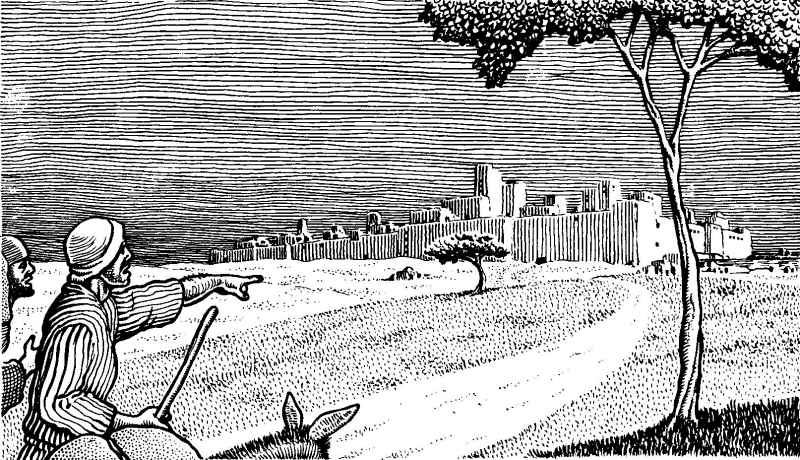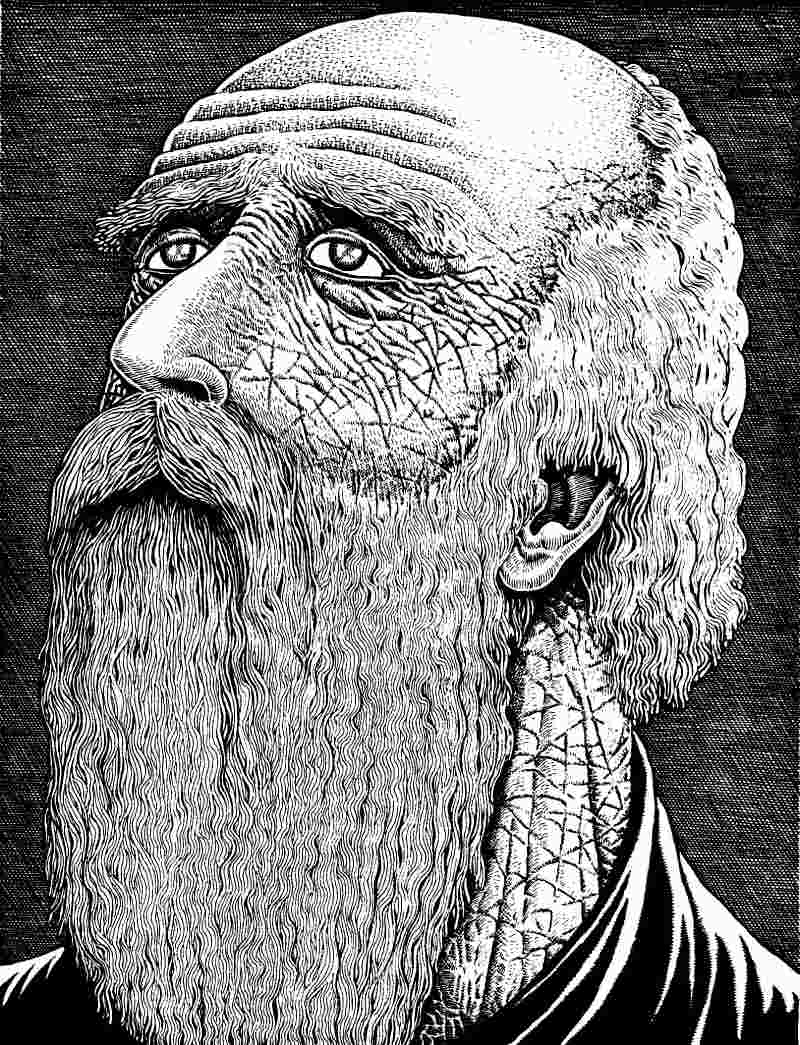Nimrod was not only ruler of Babylon, but he became the most feared man in the land. His power and wealth grew as Babylon grew. He made the laws, and those laws decreed that Babylonians should not look to the God of Noah as their ruler, but should be ruled by human governments. One of Nimrod's schemes to hold people together under his rule was to build a tower so gigantic that it would excite everyone's awe and wonder. It was to be the highest temple ever built, and a monument to the sun god in the center of a world-ruling government. (Gen. 11:4)
Men slaved for a long time just to erect the base of the tower. Then little by little the temple took shape toward the sky. Nimrod's plan for a brick monster to loom up over the plain was working out well.
Then God stepped in. He saw that Babel was only the beginning of far-fetched things men would try to do, and that they had to be stopped. (Gen. 11:6) Imagine what it would have been like if men such as Nimrod had been able to develop weapons such as we have today!
Many Languages Begin
|
People came from afar to gaze upon the vast mass of buildings
and high walls of the city called Babylon.
 |
Since the Flood there had been only one language. Men hadn't moved apart in different tribes long enough to start speaking in different ways as do the people of today in various sections of the Earth. (Gen. 11:1) Then something happened to the men working on the tower. They began to accuse each other of not talking plainly. Some talked one way, while others talked other ways. The less they understood one another, the more they argued. Arguments grew into fights. Work came to a halt.(Gen. 11:7-8) Not every workman necessarily spoke a different language, but God caused them to speak in so many different ways that the lack of communication made it impossible to continue working on the temple. The tower was thereafter called "Babel" because "Babel" meant "confusion" in Noah's language.

"And all the days of Noah were 950 years; and he died."
|
Not understanding their neighbors, many of the families living in or near the city of Babylon moved away to seek a living in distant parts of the land. This was what God intended for them to do. (Gen. 10:25 and Deut. 32:7-8) His way of scattering them by confusing their language was a great blow to Nimrod's scheme for quick growth of his kingdom and greater control over man's religious habits.
But during the next few years, while people were scattering out over the land, those who stayed at Babylon were increasing in numbers. Besides, many who had never been there stopped there in their travels. In time, there were so many in or near the city of Babylon that Nimrod again put men to work on the tower. Nevertheless, it wasn't God's will that the tower should be finished. It never was.
Noah Dies of Old Age
At the time Nimrod's kingdom had spread, Noah was still living! He was about seven hundred years old when God scattered men from Babylon. Still he was not feeble, and because he remained faithful to God, God gave him many more years of abundant life. He became a successful farmer who was nine hundred and fifty years old when he died!
That is a long time to live, especially when we consider how short a time we live today. Yet those who are wise enough to turn from the wrong kind of living and seek God's ways will enjoy even longer lives. They will get to live forever as spirit beings (I Cor. 15:44-45, 53), and many of them will start that long life by ruling the Earth soon with Jesus Christ for a thousand years! (Rev. 2:26-27 and 5:9-10)
Later, they will dwell in a beautiful, jeweled city God will send down from Heaven to Earth. (Rev. 21:2) This is one of the many wonderful things God has prepared for those who love Him.